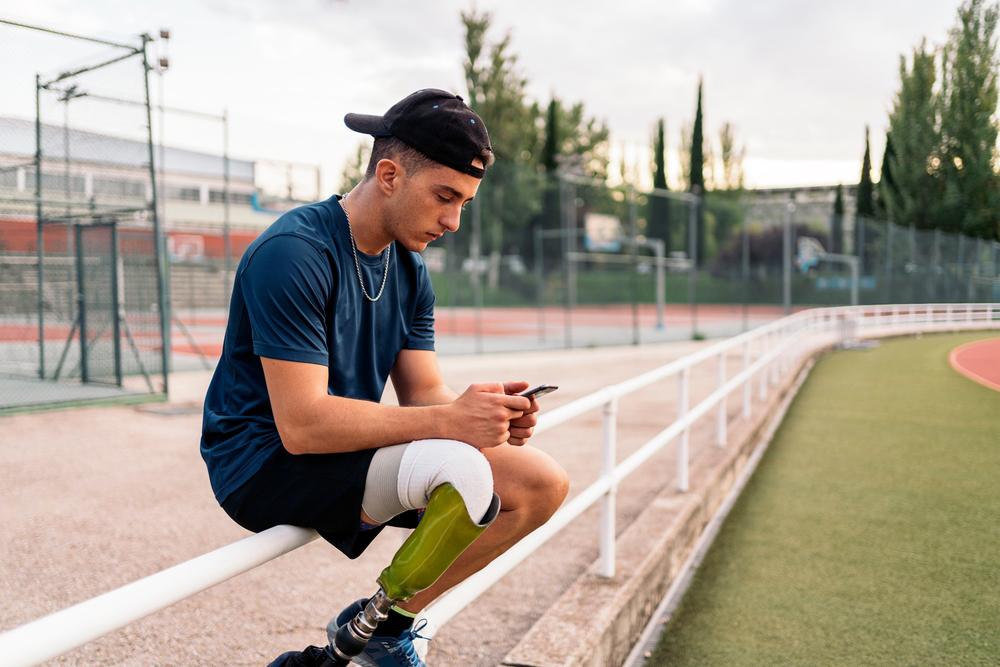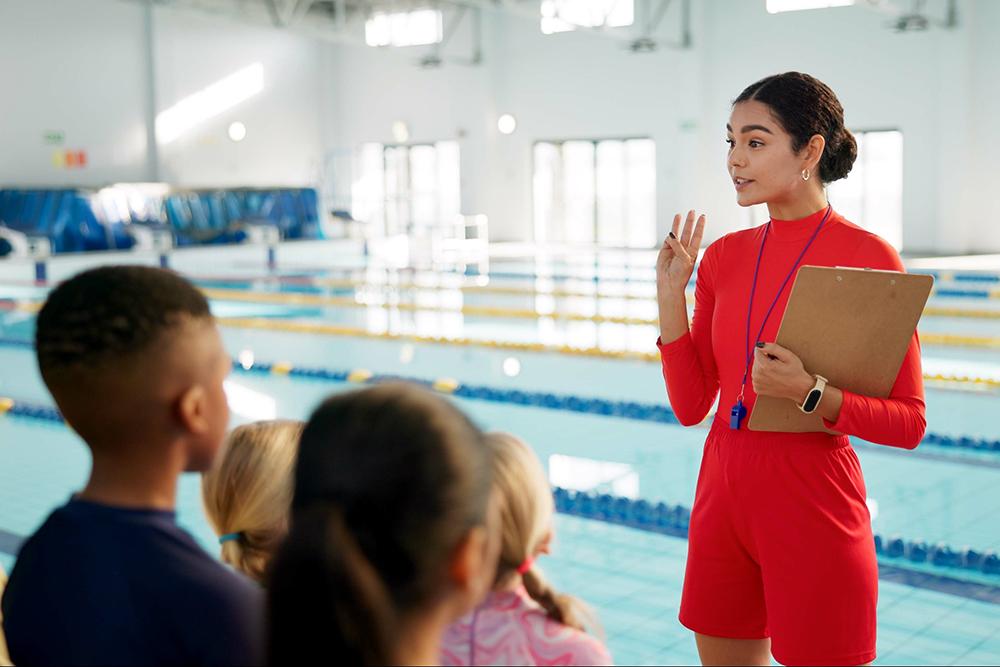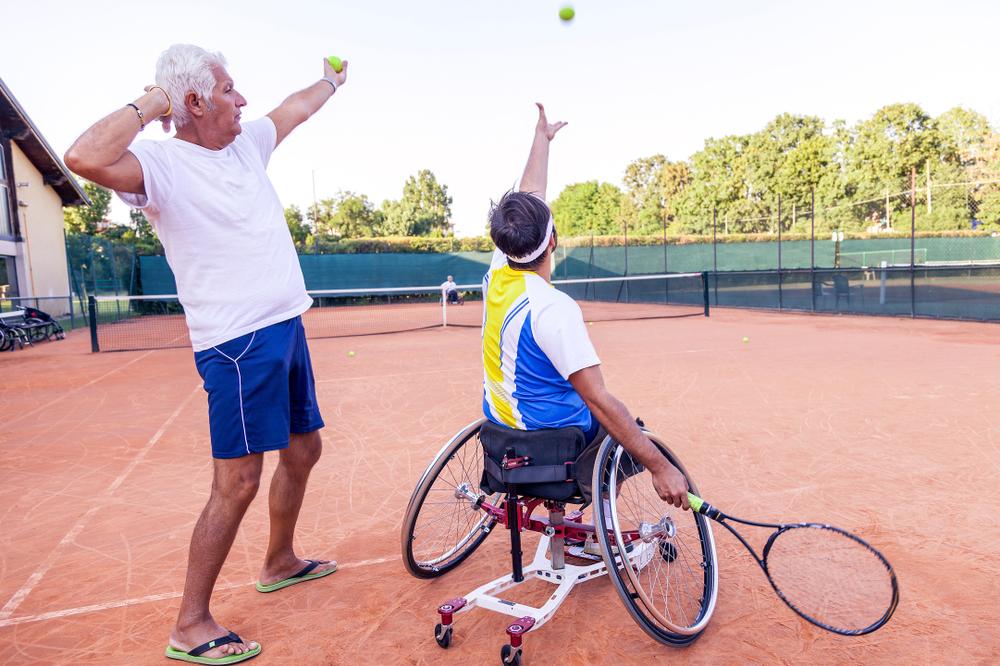 Social media is part of nearly every young athlete’s life. It’s how they connect with friends and teammates, see what other athletes are doing for training, and find like-minded communities that help them deepen their sense of self. These apps can be a positive force, but they also have the power to negatively impact your athlete’s sense of identity.
Social media is part of nearly every young athlete’s life. It’s how they connect with friends and teammates, see what other athletes are doing for training, and find like-minded communities that help them deepen their sense of self. These apps can be a positive force, but they also have the power to negatively impact your athlete’s sense of identity.
Here, Dr. Charron Sumler, TrueSport Expert and Assistant Director of Sport Psychology and Wellness Services at The Ohio State University, is exploring the positive and negative ways that social media impacts athlete identity, and how you can help your athlete navigate these tricky spaces.
Social Media and Student-Athletes
According to the Pew Research Center, about 60 percent of the teen population uses Instagram, TikTok, and Snapchat, while about 93 percent of teens use YouTube. For many young people, social media is a way of developing and sharing their identity—sometimes with communities that they otherwise would be unable to access.
This means that for caregivers, it’s helpful to look at social media as a part of your athlete’s life and think about ways to make their relationship with these online platforms a healthy one, rather than view social media as a problem or an app that should be deleted. “I’d love for caregivers to think about how we can support an athlete’s identity development through social media rather than trying to fight its usage,” Sumler says.
Pro: Name, Image, Likeness (NIL) Preparation
It’s impossible to talk about youth athletes on social media without addressing the updated NIL rules that allow student-athletes to monetize themselves as personal brands. Social media is a large driver of these NIL deals, and athletes who have popular social platforms are undeniably at an advantage in this space. Developing a personal brand on social media means that your athlete is strategically thinking about how they want to be seen and honing their identity in a purposeful way. While it’s important not to commoditize a young athlete, if they do continue to play sport in college and beyond, it’s likely that they will be expected to engage with social media, which can be challenging if they haven’t been allowed to develop an online presence and identity earlier.
Con: Lack of ‘Likes’ Can Be Harmful to Self-Esteem
Not only do athletes worry about feedback from teammates and coaches in real life, but now they also worry about how the entire world views them online. “Social media expedites the directness of feedback or lack of feedback that you get about your sport,” says Sumler. An athlete who’s posting videos of their skills on the soccer field hoping to catch the eye of college recruiters or potential brand sponsors may be thrilled by a lot of positive feedback, but it’s just as likely that they either won’t get the views that they’re hoping for or may even receive negative commentary as well.
Pro: Access to Broader Communities
Your athlete is much more than a soccer player, wrestler, or track star. They’re a multi-faceted human with many different identities, some of which they won’t see represented in their school or local communities. For many athletes, online communities have become safe spaces for them to explore new identities and feel less alone, says Sumler. This is particularly true for athletes who identify as 2SLGBTQ+.
Con: Increased Comparison
Social media has made it so that athletes are no longer comparing themselves to teammates or their direct competitors, they’re now able to compare themselves to thousands of athletes just like them around the world. This can sometimes be channeled positively, says Sumler, but often, it can cause a negative reaction as your athlete is constantly presented with other athletes who are doing “more,” “better” or “faster” than them. This can cause your athlete to actually decrease their self-belief, since they’re bombarded with (often heavily edited) images and videos of other athletes who are seemingly better.
Pro: Ability to Learn from Other Athletes’ Examples
While comparison can be problematic, seeing other athletes on social media can often be inspiring, says Sumler. Many young athletes are now able to find role models who motivate them and teach them new skills and ways of viewing the sport. Athletes like Simone Biles are also on social media speaking about topics like mental health, which helps reduce stigma and create networks of support. In many cases, these athletes can help your athlete better understand some of the challenges that they’re going through, and potentially help them develop a healthier relationship with themselves and their sport.
Con: Your Own Social Media May Impact Your Athlete’s Sense of Self
 Finally, your athlete’s identity can be impacted by how you are representing them on your own social media platforms. Many parents are now active on Instagram and Facebook, and often share photos and updates of their young athletes. While this may seem innocuous and innocent, it can actually influence how your athlete sees themself and how they view your relationship. As a proud parent, it’s natural to want to post when your athlete scores the game-winning goal. But Sumler notes that your athlete may see that post and feel as though you only mention them on social media when they’re scoring a goal or winning a game. This can leave an athlete feeling like the only way to win your respect, attention, or admiration is by achieving wins.
Finally, your athlete’s identity can be impacted by how you are representing them on your own social media platforms. Many parents are now active on Instagram and Facebook, and often share photos and updates of their young athletes. While this may seem innocuous and innocent, it can actually influence how your athlete sees themself and how they view your relationship. As a proud parent, it’s natural to want to post when your athlete scores the game-winning goal. But Sumler notes that your athlete may see that post and feel as though you only mention them on social media when they’re scoring a goal or winning a game. This can leave an athlete feeling like the only way to win your respect, attention, or admiration is by achieving wins.
“It’s important for caregivers to recognize their own involvement in their child and how the whole family is posting on and interacting with social media,” says Sumler. “Aim to have open and regular conversations with your athlete and help them create that healthy relationship.”
__________________________
Takeaway
Social media has the power to enhance an athlete’s identity, whether it’s giving them training motivation, creating connections, or accessing new communities. However, it can also negatively impact an athlete’s identity thanks to the relentless opportunity for comparison and negative commentary. Barring teens from social media is no longer a helpful option, so caregivers can instead focus on helping athletes understand what parts of social media are and aren’t serving them.



